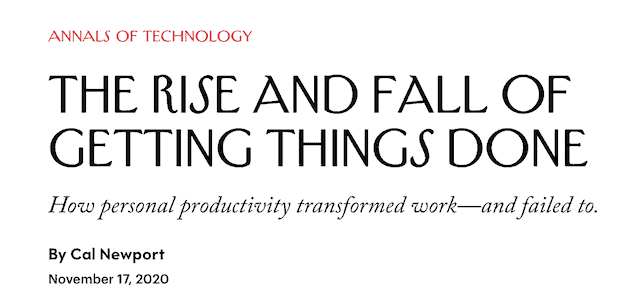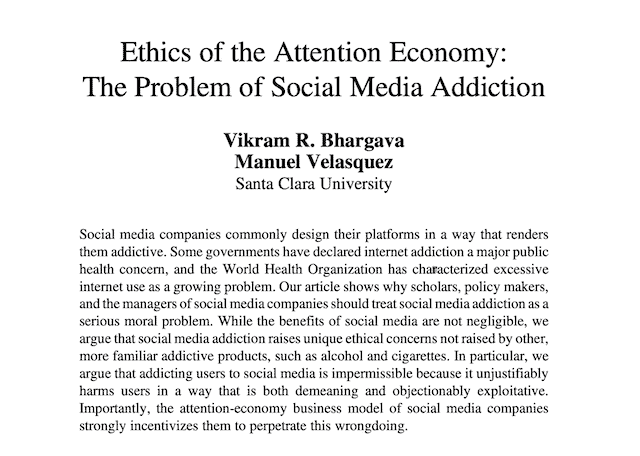
My latest article for The New Yorker, published on Tuesday, is titled “The Rise and Fall of Getting Things Done.” It’s not, however, really about David Allen’s productivity system, which longtime readers (and listeners) know I really admire. It’s instead about a deeper question that I hadn’t heard discussed much before: Why do we leave office workers to figure out on their own how to get things done?
With the notable exception of agile software development teams, companies in this sector largely leave decisions about how work is assigned, reviewed, and organized up to individuals. We promulgate clear objectives and construct motivating corporate cultures, but when it comes to actually executing these tasks, we just hook everyone up to an email address or Slack channel and tell them to rock and roll. This has led to a culture of overload and fragmented attention that makes everyone involved miserable.






